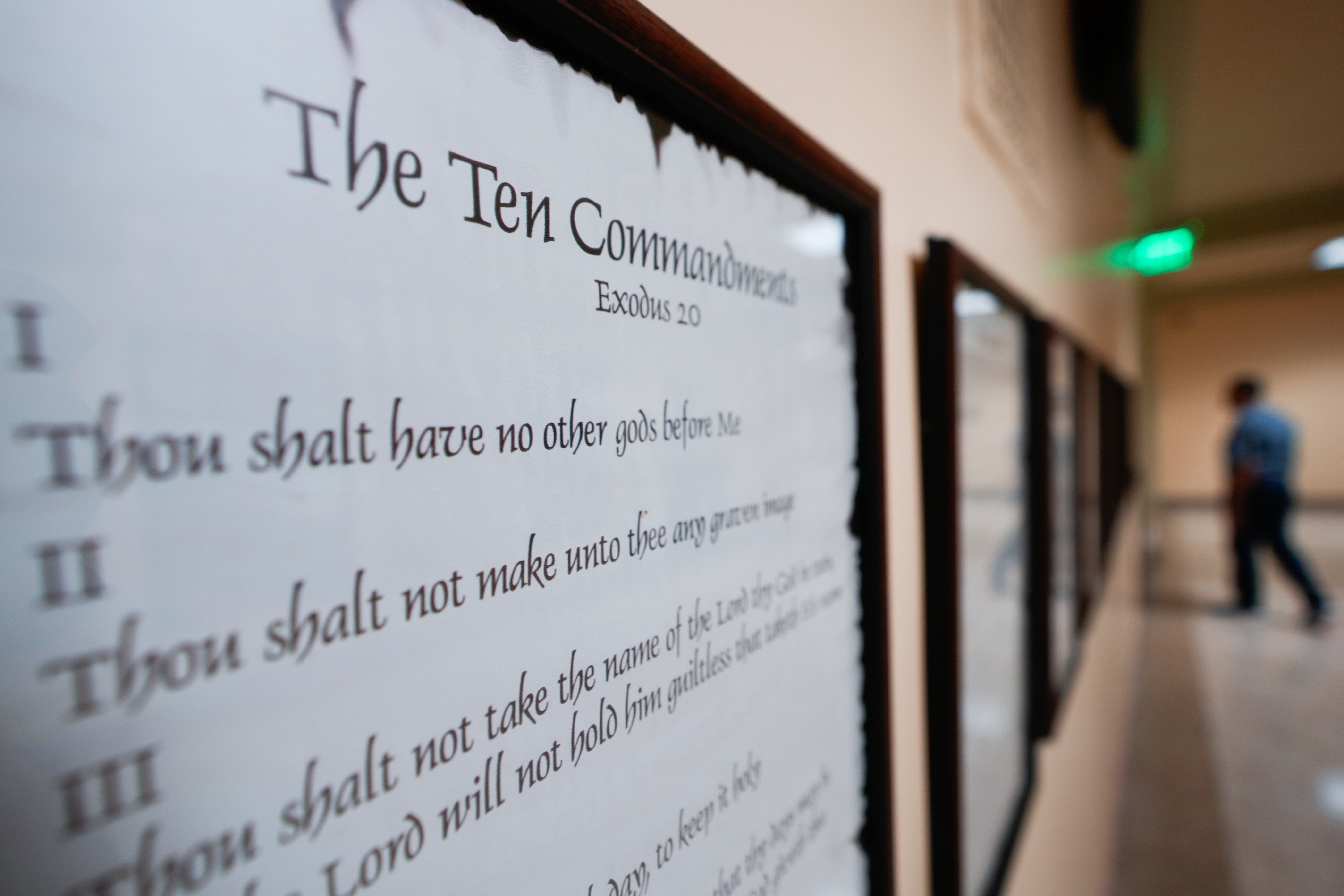Federal judge blocks Louisiana law that requires classrooms to display Ten Commandments
A new Louisiana law that requires the Ten Commandments to be displayed in every public classroom by Jan. 1 has been temporarily blocked after a federal judge granted a preliminary injunction

A new Louisiana law that requires the Ten Commandments to be displayed in every public classroom by Jan. 1 has been temporarily blocked after a federal judge granted a preliminary injunction on Tuesday.
The judge said the law is “unconstitutional on its face” and plaintiffs are likely to win their case with claims that the law violates the First Amendment.
The ruling marks a win for opponents of the law, who argue that it is a violation of the separation of church and state and that the poster-sized display of the Ten Commandments would isolate students, especially those who are not Christian. Proponents say that the measure is not solely religious, but that it has historical significance to the foundation of U.S. law.
U.S. District Judge John W. deGravelles in Baton Rouge, issued the order in an ongoing lawsuit filed by a group of parents of Louisiana public school children. They say that the legislation violates First Amendment language forbidding government establishment of religion and guaranteeing religious liberty.
The new law in Louisiana, a reliably Republican state that is ensconced in the Bible Belt, was passed by the state's GOP-dominated Legislature earlier this year.
The legislation, which has been touted by Republicans including former President Donald Trump, is one of the latest pushes by conservatives to incorporate religion into classrooms — from Florida legislation allowing school districts to have volunteer chaplains to counsel students to Oklahoma’s top education official ordering public schools to incorporate the Bible into lessons.
In recent years, similar bills requiring the Ten Commandments be displayed in classrooms have been proposed in other states including Texas, Oklahoma and Utah. However, with threats of legal battles over the constitutionality of such measures, none have gone into effect.
In 1980, the U.S. Supreme Court ruled that a similar Kentucky law was unconstitutional and violated the establishment clause of the U.S. Constitution, which says Congress can “make no law respecting an establishment of religion.” The high court found that the law had no secular purpose but rather served a plainly religious purpose.
Louisiana’s legislation, which applies to all public K-12 school and state-funded university classrooms, requires the Ten Commandments to be displayed on a poster or framed document at least 11 inches by 14 inches (28 by 36 centimeters) where the text is the central focus and “printed in a large, easily readable font.”
Each poster must be paired with the four-paragraph “context statement” describing how the Ten Commandments “were a prominent part of American public education for almost three centuries.”
Tens of thousands of posters would likely be needed to satisfy the new law. Proponents say that schools are not required to spend public money on the posters, and instead that they can be bought using donations or that groups and organizations will donate the actual posters.
Bookmark popover
Removed from bookmarks